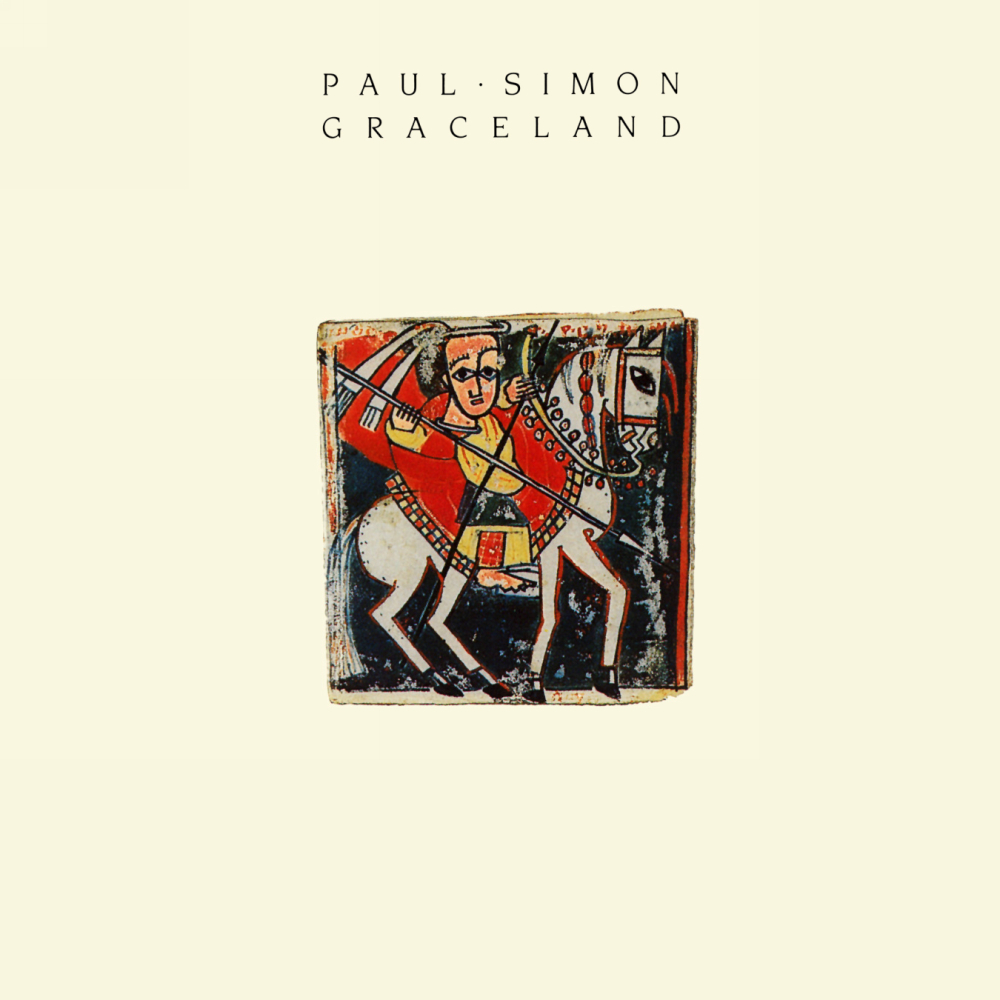Released: 25 August 1986

Listen, I know about Paul Simon. I’m not a complete idiot. I love Simon and Garfunkel. I love You Can Call Me Al. Surely, that’s all you need isn’t it? Apparently not. People have been espousing the importance of Simon’s magnum opus Graceland to me for years now, so I guess it’s time I took the plunge…
Wow. What a start to an album. The Boy in the Bubble is a mad tour de force of accordion, snare drums and Simon’s whimsical lyrics. A fantastic opening track from one of America’s finest songwriters. THIS is how you start a record. And then follows the irresistible stomp of the title track. Another instant classic. Next, I Know What I Know is the kind of track that makes me never want to pick up a guitar again in my life, such is the quality of Simon’s stringwork. Gumboots is a lovely pop song that finds Simon comfortingly declaring that ‘breakdowns come and breakdowns go’ which made me feel better about my own impending isolation inspired breakdown. His lyrics are poetic but beautiful in their simplicity. A wry smile in written form.
Diamonds on the Soles of Her Shoes is the first track on Graceland that I don’t immediately love. It drifts along nicely enough without ever really threatening to do anything interesting, although the occasional brass interludes are a tantalising glimpse into the next song on the record.
I’ve spent a lot of time in my life getting drunk. I am a hopeless drunkard. Ten years in the pub industry will do that to a man. Some of my finest drunken memories were soundtracked by You Can Call Me Al. The ultimate party song. A song that makes you feel invincible. A song to unite brothers in arms and quarrelsome lovers. In the context of this album, it sounds even better. A stone cold masterpiece.
Unfortunately, large swathes of the second half of the album suffer in comparison to what has come before. Under African Skies is pretty, but forgettable, Homeless is a nice nod to the African heritage that underpins Graceland, but it offers little in terms of songcraft and Crazy Love, Vol. II even has a key change for chrissakes – the only real moment of the album that places it in the ’80s, the rest of the record still sounds achingly timeless.
Graceland picks up before it waves goodbye with the enjoyable, high tempo shuffle of That Was Your Mother, before Simon manages to pack in one last great song before it all comes to an end. The admittedly pretentiously titled All Around the World or the Myth of Fingerprints is another accordion led sensation, and a fitting end to genuinely classic record.
The key to the success of Graceland is that for all its sonic experimentation, for all its African fusion, it remains at its heart an album of three minute pop songs. And there lies the genius of Paul Simon.

